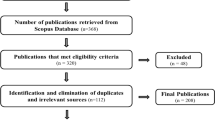Abstract
The objective of this paper is analyze 1,500 microlessons in regard to design, technical features, types, and development problems. The microlessons had all been entered in China’s National Multimedia Courseware. Relevant suggestions and strategies are also offered on the use of microlessons in higher education. The relationships among the five key concepts, namely, microlesson, Flipped Classroom, SPOC, MOOCs and Rapid E-learning, are described. This paper then proposed a Five-in-one Relation Model and Four Stage Model of Microlesson Evolution. Microlessons are categorized, based on their technical complexity, captioning, language fluency, video clarity, teaching skill, overall video effects and comprehensiveness. Instructional design, technical realization, and presentation effect are considered. In this paper, two microlesson cases are analyzed. The problems related to microlesson development are summarized, and proposals are made for improvement measures.
Access this chapter
Tax calculation will be finalised at checkout
Purchases are for personal use only
Similar content being viewed by others
Notes
- 1.
NMCC is one of the most famous national courseware contests hosted by Ministry of Education in China. It has been hosted for 15 years. Micro-lesson is one section of the project.
- 2.
Few microlessons were submitted by vocational schools. Therefore, they are negligible in the subsequent statistics.
References
Abeysekera, L., Dawson, P.: Motivation and cognitive load in the flipped classroom: definition, rationale and a call for research. High. Educ. Res. Dev. 34(1), 1–14 (2015)
Defelice, R.A., Kapp, K.M.: Time to Develop One Hour of Training. ASTD. Retrieved 23 October 2015
Zhao, G., Liu, J., Wang, J.: Applied Design of Microlesson, Flipped classroom and MOOCs, pp. 10–21. Peking University Press, Beijing (2015)
Goral, T.: SPOCs may provide what MOOCs can’t. University Business (2015)
Li, J.: The Conception of Microlesson. ICT Prim. Middle Sch. 2013(4), 10–12 (2013)
Karrer, T.: is Rapid eLearning. eLearning Technology (2006)
McGrew, L.A.: A 60-second course in organic chemistry. J. Chem. Educ. 70(7), 543–544 (1993)
Oremus, W.: Forget MOOCs. Slate (2013)
Shieh, D.: These lectures are gone in 60 seconds. Chronicle High. Educ. 55(26), A1, A13 (2009)
Tiesheng, H.: Microlesson: the new tendency of area ICT education resources. Res. Audio Vis. 2011(10), 61–65 (2011)
Zhu, Z.: Design analysis and model about microcourse. J. China Audio Vis. 2013(12), 127–131 (2013)
Author information
Authors and Affiliations
Corresponding author
Editor information
Editors and Affiliations
Rights and permissions
Copyright information
© 2016 Springer International Publishing Switzerland
About this paper
Cite this paper
Zhao, G., Wang, B., Liu, J., Wang, J. (2016). Microlessons in Chinese Universities: Concepts, Technology, and Case Analyses. In: Cheung, S., Kwok, Lf., Shang, J., Wang, A., Kwan, R. (eds) Blended Learning: Aligning Theory with Practices . ICBL 2016. Lecture Notes in Computer Science(), vol 9757. Springer, Cham. https://doi.org/10.1007/978-3-319-41165-1_7
Download citation
DOI: https://doi.org/10.1007/978-3-319-41165-1_7
Published:
Publisher Name: Springer, Cham
Print ISBN: 978-3-319-41164-4
Online ISBN: 978-3-319-41165-1
eBook Packages: Computer ScienceComputer Science (R0)




